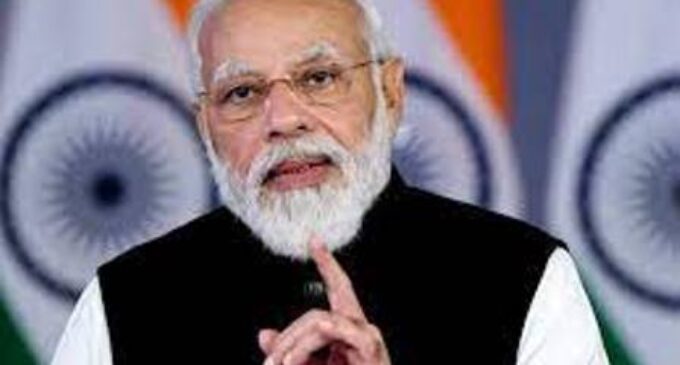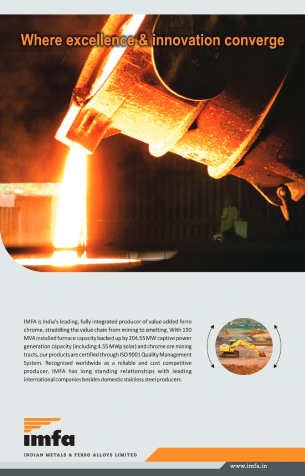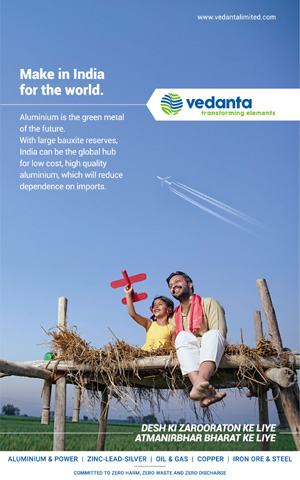A commitment to good governance

NEW DELHI,DEC 12 : The Supreme Court of India has delivered a historic judgment on the abrogation of Articles 370 and 35(A). The court has upheld the sovereignty and integrity of India. It rightly observed that the decision taken on August 5, 2019 was done with the purpose of enhancing constitutional integration, not disintegration. The court has also recognised that Article 370 was not permanent in nature.
Jammu, Kashmir and Ladakh’s breathtaking landscapes have captivated the hearts of poets, artists and adventurers for generations. But for the last seven decades, these places witnessed the worst form of violence and instability, something the wonderful people never deserved.
I have had the opportunity of being connected with the J&K andolan from a very early part of my life. I belong to an ideological framework where it was not merely a political issue, but was about addressing the aspirations of society. Syama Prasad Mookerjee held an important portfolio in the Nehru cabinet and could have remained in government for a long time. Yet, he quit over the Kashmir issue even if it meant paying with his life. His efforts led to crores of Indians becoming emotionally attached with the Kashmir issue. Years later, Atal ji gave the powerful message of “insaniyat, jamhooriyat and kashmiriyat” in Srinagar, which has also been a source of inspiration.
It was always my firm belief that what had happened in J&K was a great betrayal—to our nation and to the people living there. It was also my strong desire to do whatever I can to remove this blot, this injustice done to the people.
In very basic words—Articles 370 and 35(A) were like major obstacles. It seemed like an unbreakable wall and the sufferers were the poor and downtrodden. As a karyakarta who has seen the issue closely over the last several decades, I had a nuanced understanding of its specifics and complexities. Yet, I was crystal clear that the people of J&K want development and they want to contribute to the development of India. They also want a better quality of life for their children, a life free from violence and uncertainty. Thus we gave primacy to three pillars—understanding the citizens’ concerns, building trust through supportive actions, and prioritising development, development and more development.
In 2014, just after we assumed office, deadly floods struck J&K. In September 2014, I went to Srinagar to assess the situation and announced Rs 1,000 crore as a special assistance for rehabilitation, signalling our government’s commitment to supporting the people during crises. I had the opportunity to meet people from different walks of life and there was one common thread in these interactions—the people not only wanted development, but they also wanted freedom from the rampant corruption prevailing for decades. The same year, I decided not to mark Diwali in remembrance of those we lost in J&K. I also decided to be in J&K on Diwali.
We decided that our ministers would frequently go there and directly interact with people—crucial for building goodwill. From May 2014 to March 2019, over 150 ministerial visits took place—a record in itself. The special package contained initiatives for infrastructure development, job creation, tourism promotion and support to the handicraft industry.
We harnessed the power of sports in J&K. Sporting venues were upgraded, training programmes were organised and coaches were made available. One of the unique things was to encourage the setting up of local football clubs. The results were outstanding. The name of the talented footballer Afshan Ashiq comes to my mind. In December 2014, she was a part of a stone-pelting group in Srinagar; but with the right encouragement, she turned to football and excelled in the game. I recall interacting with her, when I said it’s time to move over ‘Bend it like Beckham’, because it is now ‘Ace it like Afshan.’
The panchayat polls were also a watershed moment. Once again, we were faced with a choice of either remaining in power or standing by our principles—the choice was never tough and we let go of power. My mind goes back to an interaction with village pradhans. I made a request to them—that it must be ensured that at no point schools are burnt. I was delighted to see that this was adhered to. After all, if schools are burnt the biggest sufferers are small children.
The last four years have been marked with a renewed faith in grassroots democracy. Women, tribals, SC, ST and marginalised sections of society were not getting their due. At the same time, the aspirations of Ladakh were totally ignored. August 5, 2019 changed all that. All central laws now apply without fear or favour. Representation got wider—a three-tier panchayati raj is in place, block development council elections have been held, and refugees, who were all but forgotten, have begun to enjoy the fruits of developent.
Some key central schemes— including Saubhagya, Ujala and Ujjwala—have covered all sections of society. Strides have been made in housing, tap water connection and financial inclusion. Healthcare has witnessed an upgrade of infrastructure. All the villages achieved open defecation free status. Government vacancies have been filled in a transparent and process-driven manner. Other indicators like infant mortality have shown betterment. The boost to infrastructure and tourism has been for everyone to see. Earlier, there was a question mark on the status of Jammu, Kashmir and Ladakh. Now, there are only exclamation marks about record growth, record development and record tourist inflows.
The Supreme Court’s verdict has strengthened the spirit of ‘Ek Bharat, shreshtha Bharat’—it has reminded us that what defines us is unity and a shared commitment to good governance. Today, every child born in Jammu, Kashmir and Ladakh is born with a clean canvas, where he or she can paint a future full of vibrant aspirations. Today, the dreams of the people are no longer prisoners of the past, but are possibilities of the future. Development, democracy and dignity have replaced disillusionment, disappointment and despondency.
-PTI






